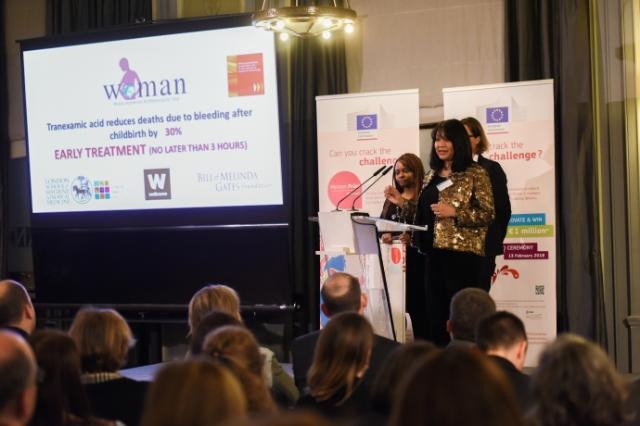The most dangerous day in the life of a child is the day when it’s born. At a ceremony in Brussels this week the European Commission awarded the Horizon Birth Day Price to reduce maternal and neonatal mortality. The “Birth day” Prize is an initiative of the European Commission under the Horizon 2020 research and innovation program. The Commission has committed €1 million, with the Bill & Melinda Gates Foundation pledging another €1 million and a further €500 000 donated by global health care provider MSD for Mothers.
Maternal deaths have dropped worldwide after the adoption of the Millennium Development Goals (MDG) in 2000 by the United Nations to reduce child mortality and improve maternal health but are still unacceptably high, especially in low and middle income countries.
According to a recent report from the World Health Organisation (WHO) an estimated 303 000 women died in 2015 from preventable causes related to pregnancy and childbirth. 5.9 million children per year die before their 5th birthday, of which 2.65 million are newborn babies, because basic technology and resources are missing.
“It’s tragic to see that so many mothers and their newborn babies die,” Carlos Moedas, EU Commissioner for Research, Science and Innovation, said at the award ceremony (13 February). “Prizes can change the world. Through this contest we identified several ways of preventing these deaths.”
He added that “The Commission couldn’t have done it alone. Together with our partners we share a commitment to change the life of women.”
More than 50 proposals were received and assessed by a panel of experts to identify solutions that best demonstrate a reduction in maternal and/or newborn mortality and/or stillbirths during facility-based deliveries. The solutions needed also to be novel, safe and scalable.
The €1 million first prize went to a French-Canadian research team from the Institut de Recherche pour le Développement in France, led by Prof Alexandre Dumont. “I have spent 20 years of my life to reduce maternal deaths,” he said. “The prize will give me energy for 20 more years.”
The solution, called QUARITE, developed a kind of checklist or method of analysing and tracing the causes of maternal deaths in hospitals in Senegal and Mali, and then applied that knowledge to prevent more deaths. This reduced maternal deaths in hospitals overall by 15%, and by as much as 35% in district hospitals.
The second €1 million prize was awarded to the CHAI maternal and neonatal health program in Northern Nigeria. It’s a managerial intervention at district level, involving health centres/hospitals and skilled birth attendants, and has after only two years achieved impressive results in lower mortality rates.
| Treatment of bleeding after childbirth The third € half million prize was awarded to the WOMAN Trial project run by Prof Haleema Shakur-Still and her team of the London School of Hygiene and Tropical Medicine. This project was about generating new knowledge and testing a medication for treatment of post-delivery bleeding (postpartum hemorrhage, PPH), the leading cause of maternal mortality around the world. About 14 million mothers suffer from post-delivery bleeding and about 2% of them will die, with an average interval from onset to death of 2 to 4 hours. Obstetric haemorrhage is also a cause of maternal mortality in high income countries where it accounts for about 13% of maternal deaths. Prof Shakur-Still looked at the effect of a drug called tranexamic acid as a treatment for bleeding after childbirth. The project was one of the largest randomised control trials to be conducted in this vulnerable population and involved more than 20 000 patients in 21 countries. Asked by The Brussels Times about the project, she told us that the drug is a blood clot stabilizer which had been discovered in Japan in the 1950’s but largely been forgotten since then and not tried on bleeding after childbirth. “I have been working on this project for 8 years,” she said enthusiastically, “ and now the treatment has been recognized by WHO as a first-line treatment of bleeding after childbirth. The treatment has no adverse effects and should be given as soon as possible and not later than 3 hours after birth.” |
M. Apelblat
The Brussels Times

